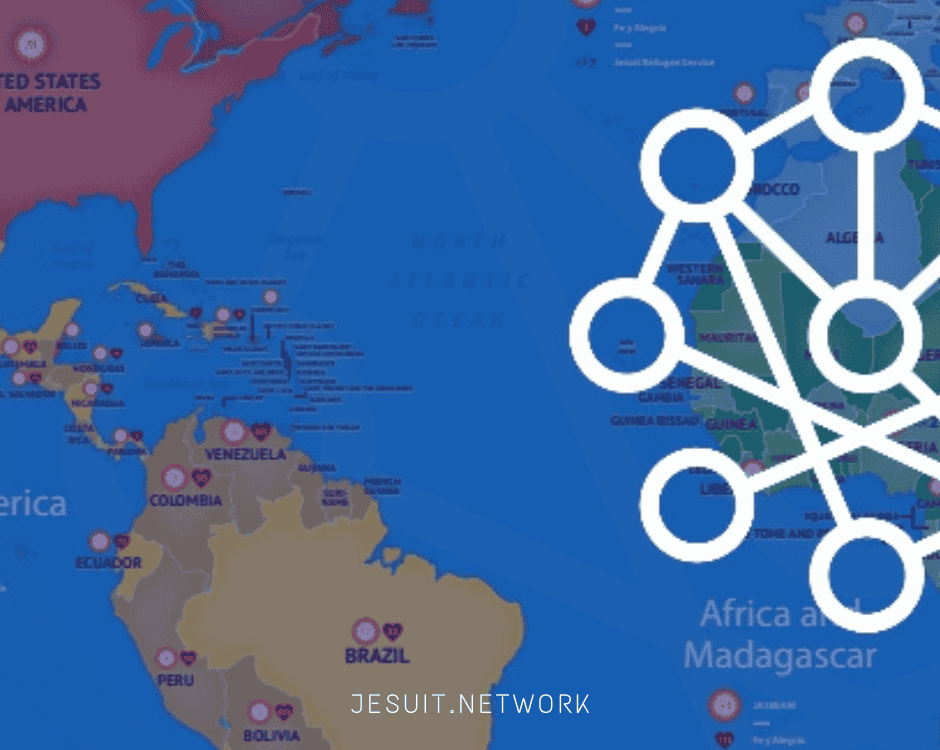Este sitio web utiliza cookies para que podamos ofrecerle la mejor experiencia de usuario posible. La información sobre cookies se almacena en su navegador y realiza funciones como reconocerle cuando vuelve a nuestro sitio web y ayudar a nuestro equipo a comprender qué secciones del sitio web le resultan más interesantes y útiles.
The Jesuit Way of Networking
[pullquote align=»right»]We have to take an honest look at the history and success of past Ignatian endeavors. While there is much to draw on, the realities of the world call for new responses.[/pullquote] Networking and networks are no different! We are all part of some form of network, be it a more traditional one like our extended network of family and friends, or one of these new technological networks which have created in us the pure illusion that we have a big network. But we all know, even if we keep it to ourselves, that most of the networks we are involved in are fruitless. Your Facebook connections don’t reflect the number of friends you have; your professional networks don’t guarantee job security; and in most networking events you end up talking with people you already knew! We need to start looking at networks and networking differently!
The Jesuits, as usual, provide us with fresh insights into networking. And as usual, the insights the Jesuits provide us with are not fresh at all! The Jesuits have been doing it for 475 years! We have to take an honest look at the history and success of past Ignatian endeavors. While there is much to draw on, the realities of the world call for new responses. Yes, we recognize that there is a modern illusion that technology solves everything: networks are ‘the thing now’ because ‘we have the internet and all these collaboration platforms’. Yet today we gather in recognition of this potential pitfall, and take on a different approach. When evaluating the Jesuits and their networking potential, we need moments of reflection, prayer, hope and inspiration. The Networking for Justice conference; organized by the Secretariat for Social Justice and Ecology is bringing together Ignatian networks to share insights, best practices and dive deeper into the future of Jesuit Networks
There is no better place for this important gathering than in the birth place of Ignatius of Loyola. And in recognition of the founder of the Society of Jesus, we offer some insights that are unique to the ‘Jesuit way of networking’. The ‘Jesuit way of networking’ has maintained its strength due to the deep roots in the identity and culture of the society and has three main pillars.
- Openness to diversity. Think of Jesuit history and how they were never scared of what was different: new countries, new scientific discoveries, new people, new cultures… the Jesuits were always open to diversity! The network of correspondence and reports the Jesuits created reflect that openness. Every Jesuit was exposed to Jesuits from different backgrounds and to what they were doing, most probably in a country rather far away or discovering a crater in the moon. At the time this couldn’t be more different! A take away for yourself: How many new people have you actually met during the past 12 months? Are these people different or are they just a reflection of your existing network? Think of their social background, as an example, and that might give you a clue of how boring your network might be at the end of the day…
- Active search for diversity.Think of the following: how many Jesuits you know that were born, raised, or have lived, worked and died in the same place? I don’t know one single Jesuit in that situation: every single Jesuit I know has lived in different places, has travelled, has studied abroad and even if he ended up again in his country of origin, most definitely he is now working away from his birthplace… An overwhelming majority of the Jesuits I know even speak 3 languages… you might think this is a detail, but it is an extraordinary detail… You do not expand a network if you keep doing the same things you have always done and speaking to people that resemble you, your social background and are nothing more than a copy of yourself!
- Humility. Humility looms large in the Jesuit Constitutions… humility underpins the active search for diversity as it allows you to be open when diversity knocks on your door! Are we open to other views that might contest our own? Typically we are not! The Jesuits were open to diversity. Think of the first companions… Ignatius of Loyola did not gather a group of first companions that resembled him and his Basque origins. On the contrary: the first companions were from different countries and most remarkably had rather different and opposite social backgrounds… This means that the original way of networking that characterized Saint Ignatius was just as expansive as it was inclusive: Ignatius of Loyola expanded his network because he was inclusive, even including New Christians.
What I claim is rather straightforward: the ‘Jesuit way of networking’ has always been, historically, about openness to diversity via a Christian way of including difference.
Today six global networks, Jesuits and lay people from over 20 countries from 5 continents hold these essential pillars while looking toward the new frontiers of Networking for Justice.
This post was originally written by Jose Bento da Silva, Profesor at Warwick University’s School of Business and was adapted for use and reflection at the Networking for Justice Conference.
Photo via Flickr CC license
[/vc_column_text][vc_raw_html]JTNDc3R5bGUlM0UlMEElMEElMjN0aXRsZSUyQyUyMCUyM2hlYWRlciUyMCUzRSUyMGRpdi5jb250YWluZXIlMjAlN0IlMEFkaXNwbGF5JTNBbm9uZSUzQiUwQSU3RCUwQSUyM25hdmlnYXRpb24lN0IlMEFkaXNwbGF5JTNBbm9uZSUzQiUwQWJvcmRlci1ib3R0b20lM0ElMjAxcHglMjBzb2xpZCUyMCUyM2RkZGRkZCUyMCUyMWltcG9ydGFudCUzQiUwQSU3RCUwQWg0LnRpdHVsZXRlJTIwJTdCJTBBbWFyZ2luLXRvcCUzQTEwcHglMjAlMjFpbXBvcnRhbnQlM0IlMEElN0QlMEFhJTNBaG92ZXIlMjAlN0IlMEFjb2xvciUzQSUyMCUyMzAwODJDOCUyMCUyMWltcG9ydGFudCUzQiUwQSU3RCUwQSUzQSUzQXNlbGVjdGlvbiUyMCU3QiUwQWJhY2tncm91bmQlM0ElMjAlMjMwMDgyQzglMjAlMjFpbXBvcnRhbnQlM0IlMEElN0QlMEFkaXYucG9zdC10aHVtYiUyMCU3QiUwQW1hcmdpbi1ib3R0b20lM0EyMHB4JTNCJTBBJTdEJTBBJTIzdWktaWQtMiUyQyUyMCUyM3VpLWlkLTMlMkMlMjAlMjN1aS1pZC02JTJDJTIwJTIzdWktaWQtOCUyMCU3QiUwQWhlaWdodCUzQWF1dG8lMjAlMjFpbXBvcnRhbnQlM0IlMEElN0QlMEElM0MlMkZzdHlsZSUzRSUwQQ==[/vc_raw_html][/vc_column][/vc_row]





